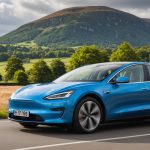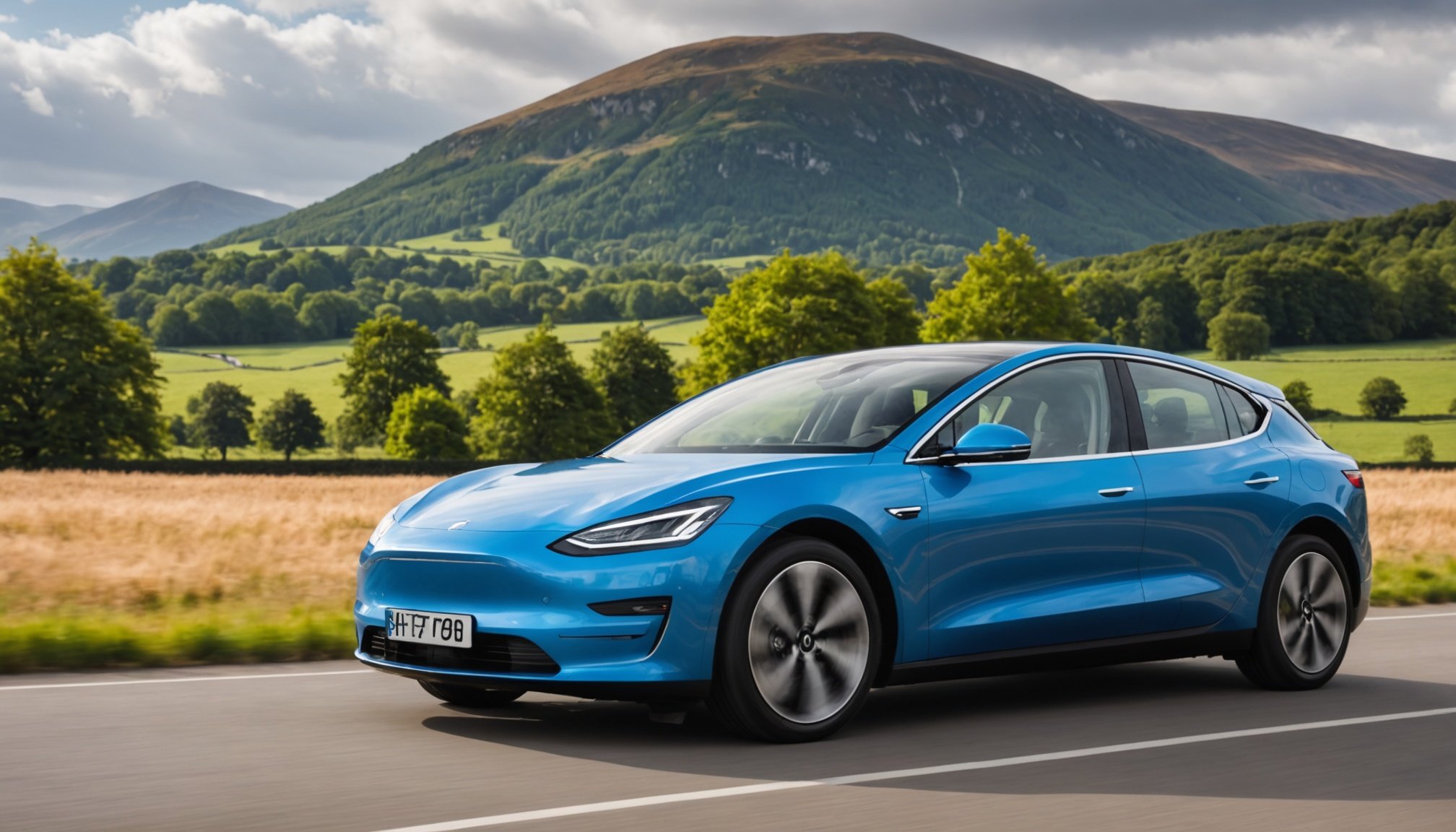Overview of Long-Distance Commuting Needs in the UK
For long-distance commuting in the UK, choosing the right mode of transportation requires careful consideration. One essential aspect is the importance of range in electric cars. Commuters need a vehicle that can travel extended distances on a single charge. The focus is on models that offer excellent mileage to ensure seamless travel without frequent stops.
Charging availability is another key factor. The UK has been expanding its charging infrastructure to support the growing number of electric vehicles. Commuters should be aware of the locations of charging stations along their routes and the types of chargers available. This information assists in planning trips effectively, making longer distances more manageable.
Also to discover : Revamp Your Classic Car: A Guide to Seamless Modern Tech Upgrades Within UK Regulations
Key features for comfort and efficiency are paramount. Electric cars designed for commuters often include ample seating space, advanced infotainment systems, and efficient climate controls to enhance the driving experience. These features collectively contribute to reduced fatigue, ensuring commuters arrive at their destinations refreshed.
Understanding the UK’s electric vehicle charging infrastructure, which includes rapid and ultra-rapid chargers, is crucial for optimal planning. Being informed about the infrastructure helps in deciding the best routes, avoiding potential delays and ensuring smooth travel experiences.
In the same genre : Key Factors to Weigh When Upgrading Your Classic Car to a Hybrid System in the UK
Top Electric Cars for Long-Distance Commuting
Exploring the best electric cars for long-distance commuting in the UK can seem daunting. Here’s a look at some popular models:
Model 1: Tesla Model 3
The Tesla Model 3 stands out as a leading choice for long-distance electric cars. It boasts a range of up to 348 miles per charge, positioning it at the top of efficiency. Charging time is relatively quick, thanks to Tesla’s extensive Supercharger network, making longer trips more manageable. The Model 3’s performance is impressive, with rapid acceleration and a smooth drive that echoes traditional luxury sedans.
Pros include state-of-the-art technology, offering a user-friendly interface with numerous smart features. Tesla’s dense charging network enhances convenience, providing accessible charging locations across the UK.
Cons revolve around its price, as the initial cost can be steep compared to other models. Availability might also pose a challenge, as high demand may lead to wait times for delivery.
These elements underline why the Tesla Model 3 is often considered an optimal choice for drivers seeking an efficient, high-performing option within the best electric cars available today.
Comparative Analysis of Electric Cars
When evaluating electric cars, understanding the range efficiency and charging times is crucial for prospective buyers. Different models offer varying ranges, directly impacting how often they need recharging. For instance, while some vehicles boast upwards of 300 miles on a single charge, others may offer slightly less, necessitating a careful comparison to ensure the car meets daily needs. Charging times vary too, with some cars capable of reaching 80% in under 30 minutes with fast chargers, although others may take longer.
While range and charging are foundational, comfort and usability also play significant roles in car reviews. Features like seating comfort, digital connectivity, and ease of navigation systems considerably affect user satisfaction. Buyers often report preferences for models offering intuitive tech interfaces and spacious interiors, highlighting the importance of a holistic evaluation.
Real-world experiences shared in user reviews provide invaluable insights beyond technical specifications. They often reveal how electric cars perform under different conditions, shedding light on aspects like weather impacts on range or the practicalities of inbuilt smart features. Ultimately, a successful electric car comparison considers both technical data and personal user experiences.
UK Charging Networks and Infrastructure
Understanding the landscape of EV charging in the UK is essential for any electric vehicle owner. Several significant charging networks facilitate the connectivity and convenience of EVs across the nation. Among the most prominent are networks like BP Pulse, Pod Point, and Shell Recharge, which offer various charging locations throughout the UK.
Public charging stations play a crucial role, especially for long-distance journeys. They provide the necessary infrastructure to maintain electric vehicles (EVs) charged when home charging isn’t an option. Access to a reliable charging network ensures you can travel without the anxiety of depleting your charge mid-trip.
Locating the nearest charging stations has become more efficient thanks to various mobile applications and websites. These tools not only map out the closest chargers but also display real-time availability and compatibility with your vehicle. It’s advisable to plan your journey in advance, incorporating necessary charging stops to optimise your route.
In essence, understanding and leveraging the available charging networks in the UK can enhance the EV ownership experience, ensuring seamless travel across long distances while mitigating any potential charging challenges. By effectively utilising these resources, drivers can confidently navigate the expanding electric landscape.
Tips for Maximizing Electric Car Range
To get the most out of your electric vehicle’s range, there are several strategies that can help. Adopting efficient driving techniques stands out as one of the most effective. Gentle acceleration and maintaining a steady speed are key practices. This helps to reduce the power demand on your battery, maximising both range efficiency and battery life.
Temperature Management and Driving Settings
Managing temperature can significantly affect EV efficiency. High or low temperatures can require more energy for climate control systems. It’s often more efficient to pre-heat or pre-cool your car while it’s still plugged in. Additionally, utilizing eco-driving modes can optimise your vehicle’s settings for energy conservation, extending your driving range.
Regular Maintenance Tips
Regular maintenance plays a crucial role in ensuring your electric car operates at peak performance. Regularly checking tyre pressure, for instance, can prevent unnecessary energy loss due to increased rolling resistance. Ensuring that the vehicle software is up to date can also enhance efficiency and incorporate the latest improvements in EV technology. By following these tips, you’ll be well on your way to maximizing the range of your electric vehicle.
Pricing Considerations for Electric Cars
Navigating electric car pricing requires consideration of various factors, which extend beyond the initial sticker price. The average cost of an electric vehicle (EV) can vary widely, influenced by the car’s brand, range, and technology features. However, potential owners should consider total cost of ownership rather than just upfront costs.
One pivotal factor in budgeting for EVs is understanding government incentives. Many governments offer incentives like tax credits or rebates, which can significantly lower the initial financial burden of purchasing an EV. These incentives are aimed at encouraging the transition to cleaner transportation and vary by region and model.
Moreover, prospective EV buyers should consider considerable long-term savings on both fuel and maintenance costs. Electric vehicles typically have lower fuel costs due to the cheaper price of electricity compared to petrol or diesel. Additionally, EVs benefit from fewer mechanical parts, leading to reduced maintenance costs over time.
When evaluating the financial aspects of owning an electric car, it’s crucial to take future savings into account. Budgeting for EVs should involve a comprehensive analysis, ensuring that buyers make informed decisions in line with their financial goals and environmental aspirations.










